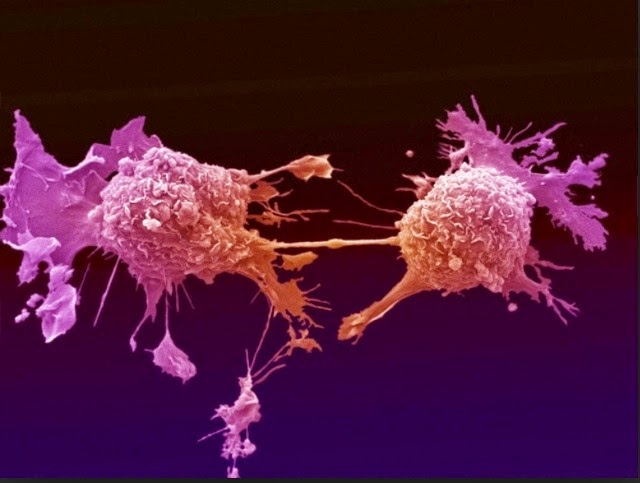I ask people for money for a living. No, I don’t call people up and ask them to give me their credit card number. I don’t sell baked goods outside of Target. I work with a talented team of professional people to create sustainable streams of income for a nonprofit organization that serves poor and homeless people. We do this through a number of means: fundraising events, will and estate planning, direct mail program, grant writing, corporate sponsorships, public relations and marketing efforts and most of all building lasting relationships with donors.
Next stop: Duke University
My next step on the journey to fully defeat cancer starts on September 8th. I will be traveling to Duke University in the Raleigh-Durham area of North Carolina to participate in a clinical trial for a vaccine that is intended to bolster my immune system in order to prevent the recurrence of colon cancer.
Suicide
So the actor, Robin Williams, age 63, died this week, apparently from hanging himself with a belt in his home after his wife went to bed. His assistant found him in the morning. This news made me feel truly sad. Most celebrity deaths do not invoke a sense of personal loss for me. However, this guy was special.
Mork appears in some of my earliest memories and Patch Adams made me want to be a doctor and the movie Dead Poet Society made me want to be a teacher. There seemed to be real kindness behind the smile. There seemed to be a good natured generosity inside. What do I know about his character? Maybe he was rude or impatient. Regardless, what’s clear is that this was a gifted man who lived an interesting life, could afford all he wanted, experienced success at many levels and made a significant impact on the world.
And, yet, one evening a few days ago, apparently, he couldn’t stand to live another moment.
Food
I recently had a conversation with a produce dept staffer at Giant Eagle. I was expressing appreciation for the recently added organic options and they were basically rolling their eyes.
It made me mad.
Look, this isn’t a fad. The fad has been the mindless consumption of processed crap for about 100 years. Hydrogenated oils. Preservatives. Artificial sweeteners. Corn syrup. Even with all of our information about the importance health, more of us are getting sick. Obesity, cancer rates and heart disease are at record highs. Do we really need convincing that something is wrong?
It’s great that more people are growing in awareness regarding the chemicals and lack of nutrients in processed foods. You don’t have to ditch all of your favorite treats and become, like, a vegan, right this instant. Just be open to learning some about what you’re eating and feeding your kids.
Seriously – think about what we feed our kids. Sugar, salt, fat, chemicals, fake food shaped like dinosaurs. I become increasingly more alarmed and less tolerant of this stuff. And people roll their eyes at me. But the difference is this: I’m carefully reading about these things, and the eye rollers just don’t want to worry about scary food issues. People want to eat their Cheetos and drink their soda in peace.
Listen, I’m not trying to ruin your fun. I adore certain foods that are made from junk. It’s a struggle to say no to them. I love giving my daughter food she loves – it’s fun to make kids happy. And believe me, candy makes this kid happy. But so do pears fresh from the tree in our yard, organic yogurt and cookies home made from real ingredients.
Having colon cancer is a major wake up call. While it is very likely genetics played a role in my developing cancer, I must examine my diet over my lifetime. I truly thought I ate healthy before. Low on meat, high on fresh vegetables. But in efforts to reduce calories in the never ending quest to be thinner, I relied heavily on artificial sweeteners and diet and lower fat products. I feel deep regret, recalling a routine I once had where nearly each night I would work out for an hour of cardio, then relax and drink about 8 glasses of iced tea, each sweetened with a packet of Equal. 8 servings of Aspartame a night. When I was pregnant and had to avoid sugar due to gestational diabetes, I ate 4-6 sugar free popcicles a night during that warm summer. I was doing my best. But I was misguided.
There is good news, though. More people are caring. More are reading labels and avoiding those unpronounceable ingredients. More are learning about how the food industry has duped us and the FDA has failed us for a century.
As more people care, the market is going to shift toward greater transparency in the food industry. And then, healthier, better options. The first step is these companies feeling the economic impact of people saying “no” to this junk. Interestingly, McDonalds had their worst July profit-wise in ten years. Changes are coming…
Good resources:
http://foodbabe.com/informativewebsites/
Let's talk colonoscopies
One thing I hope comes out of the ordeal I have been through over the past year, is that not one single person I know will procrastinate when it comes to getting their colonoscopy.



